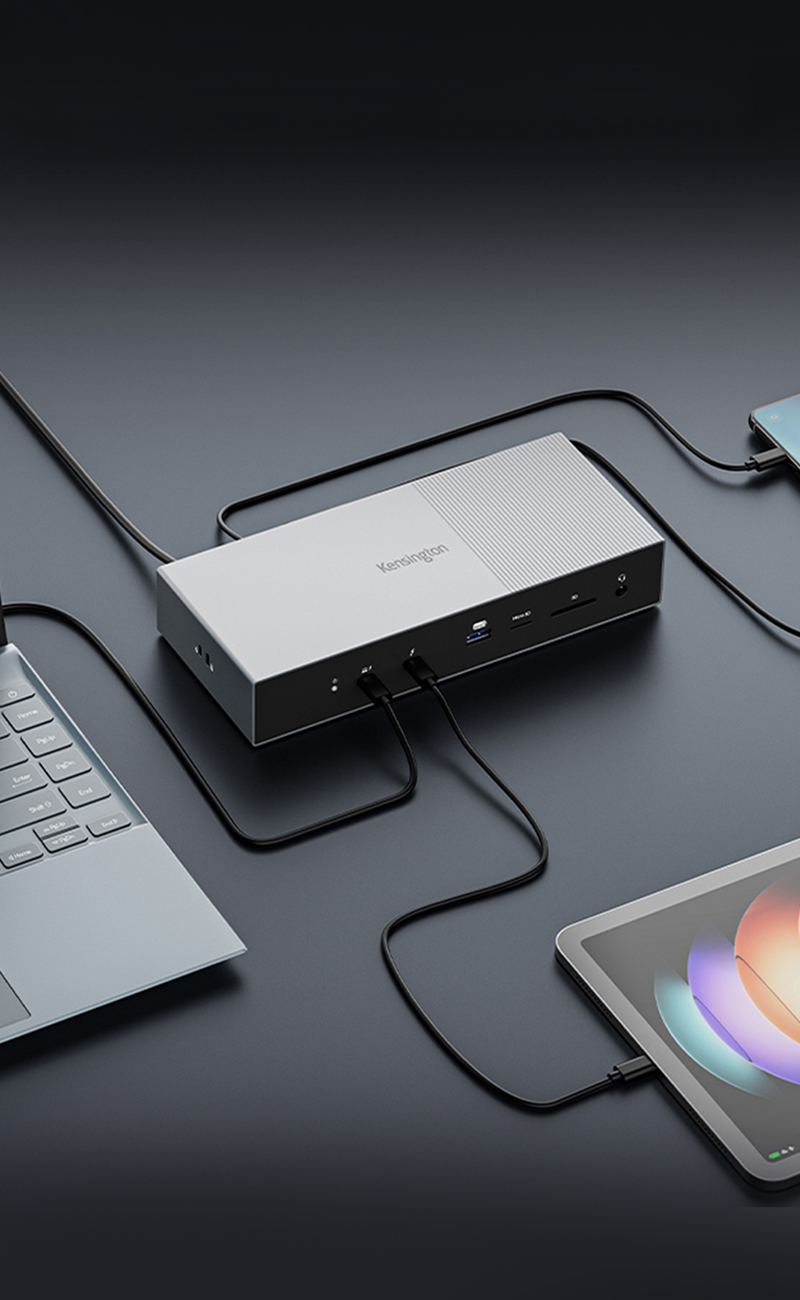
When you sit at a desk all day, it’s easy to forget about maintaining your posture. Having good posture can help you feel more relaxed at work and help prevent back pain and wrist pain, and it can reduce stress at work. Here are three easy tips to improve your posture.
Quick and Easy Tips to Improve Your Posture at Your Workstation
Here is a list of some simple adjustments you can make to sit with better posture while you’re at the office:
1. Adjust Your Computer Chair for Proper Height and Angle
First, take note of your weight distribution as you sit. Centering yourself in your chair will help prevent back pain and allow you to take full advantage of the support your chair provides.
Next, adjust the height of your chair so that your knees rest at a right angle, or close to it. Your feet should be flat on the floor, but if not, consider a footrest so your feet don’t get tired from hanging all day. Kensington offers a variety of footrests to suit everyone’s budget and needs.

Finally, adjust the back of the chair so that it provides comfortable back support. If you need more support, try out the Kensington SmartFit Conform Back Rest. You should feel comfortable leaning back into the chair – there’s no need to sit perfectly straight and rigid all day long – but don’t lean so far back that you’re straining your neck by looking up at your monitor.
Speaking of monitors...
2. Situate Your Monitors to Minimize the Need to Move Your Head
Your eyes naturally look straight ahead and downward, so make sure that the tops of your monitors are at eye level or lower to take advantage of this and place your monitors at a proper height.
Also, position your monitor so that it’s centered in front of you to prevent neck pain from turning your head all day. If you have multiple monitors, keep the monitor you look at the most directly in front of you and adjust the angle of the others so that it is easy for you to see the other screens without turning your head too much in either direction. When placing your secondary monitors, imagine them as electronic document holders. They should be positioned at a comfortable eye-level that encourages proper posture.
Whether you want a budget-friendly monitor stand or the freedom and flexibility of monitor arms, Kensington has a solution for your monitors.
3. Allow Your Arms and Hands to Be in Relaxed Positions
With your shoulders relaxed and elbows comfortably at your sides, your forearms should be parallel to the floor while using your mouse and keyboard.
Your wrists also should not rest on the desk. Utilizing a wrist rest that fits the base of your palm can help prevent carpal tunnel syndrome, as can using a mouse that’s the right size for your hand.
Check out Kensington’s collection of mouse pads and wrist rests and give your wrists the relief and comfort they deserve.

Simple Changes Can Lead to a Better Set-up
Fortunately, it doesn’t take a lot of changes to improve your posture and create a more ergonomic set-up in your office. By making sure your chair provides you proper support, that your monitors are positioned well, and ensuring that your wrists are properly supported by not resting on the desktop, you can go a long way in preventing possible back pain, wrist pain, and other issues.
Check out Kensington’s Ergonomic Products for more ideas on improving your posture at your workstation.
